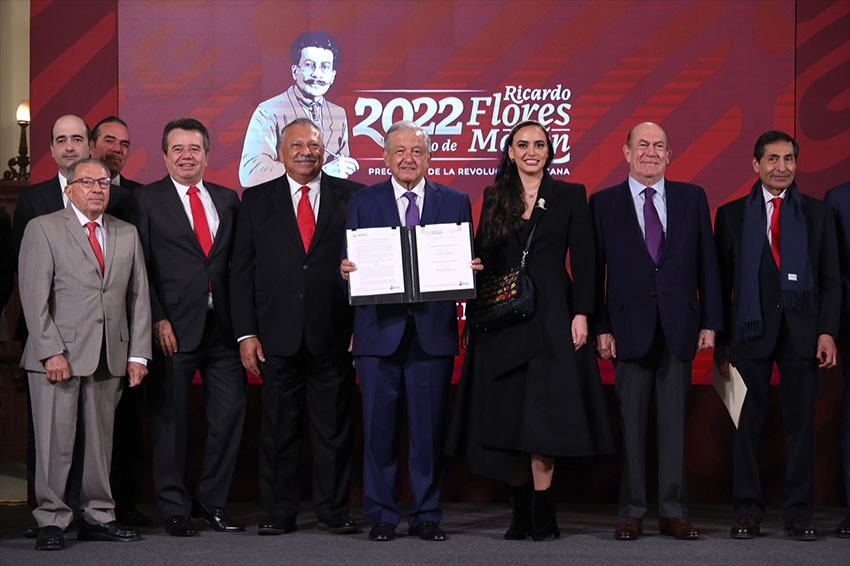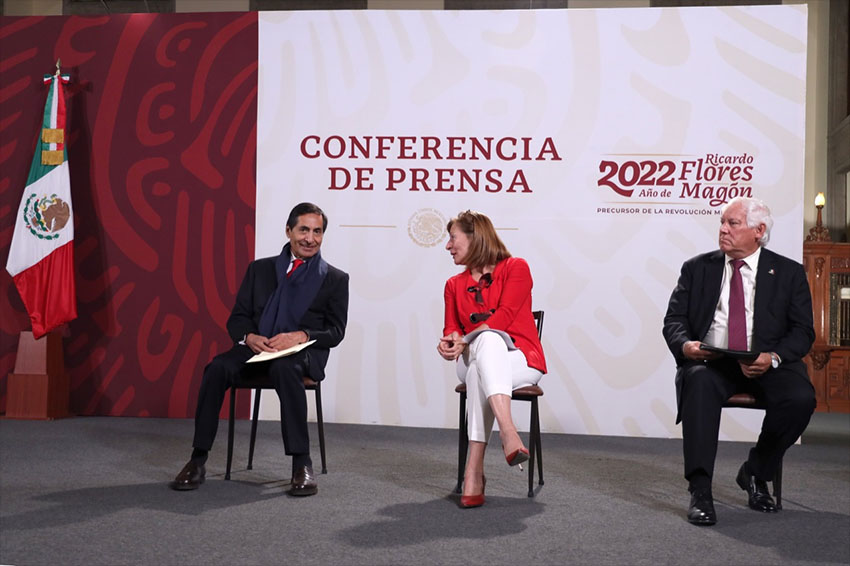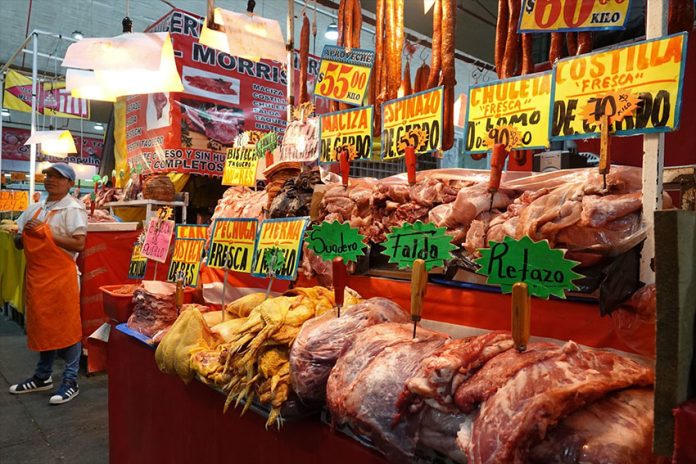The federal government has reached a new agreement with a range of private companies that aims to keep prices of basic food products down amid inflation that reached almost 9% in the first half of September.
President López Obrador and Finance Minister Rogelio Ramírez de la O on Monday presented an enhanced version of the purported inflation-busting plan that they first announced in early May.
Its objective is to keep the cost of a canasta básica — a selection of 24 basic products including beans, rice, eggs, tortillas, sugar and soap — at 1,039 pesos (US $52) until the end of February 2023.
In an attempt to help them keep their costs down, companies that signed the new deal will be exempt from a range of regulatory requirements. Among the signatories are tuna company Tuny, tortilla maker Gruma, chicken and egg producer Bachoco, several meat producers and the supermarkets Walmart, Chedraui and Soriana.

Ramírez said that signatories will be granted a temporary license that exempts them from paying a general import tax on canasta básica items and being subject to quality checks undertaken by health regulator Cofepris and agriculture sanitation authority Senasica.
The federal government will “suspend … all regulation that is considered to prevent or raise the price of importing … food and moving it within the country,” the finance minister said.
“This includes tariffs, non-tariff barriers to foreign trade and other requirements for … [the] entry and national circulation [of essential products],” he said.
Ramírez said that the companies themselves will be responsible for ensuring that their products are of high quality and free of health or other risks. He also announced that the government would maintain its fuel subsidy and freeze highway tolls until the end of February.
For his part, López Obrador said that no companies were pressured to join the plan and expressed confidence that it will help control inflation. “It will have a very positive effect, it will help us, I’m sure,” he said.
“… And we’re going to continue driving the production of basic products because the more production there is the more supply there is and there is less inflation,” López Obrador added.
“We’re going to continue supporting the countryside, … [offer] guaranteed prices to compensate the producer for his effort and work and [provide] fertilizers at accessible prices, … for two million small producers fertilizer will be delivered free, but that’s another plan to reinforce everything we’re doing,” he said.
The president also committed to keeping electricity rates at their current level. “The prices of gasoline, of diesel, of electricity and basic foods won’t go up, that’s the essence of everything,” he said.

The success of the original version of the government’s anti-inflation plan — which also involved an agreement with the private sector but largely focused on boosting production of foodstuffs such as corn, beans and rice — is disputed. Data published in July by the national statistics agency INEGI showed that 17 of the 24 canasta básica prices had in fact increased since the original plan was introduced.
But the government argues that INEGI’s data doesn’t accurately reflect the effectiveness of its anti-inflation plan, which is officially called the Packet against Inflation and Scarcity, or PACIC. Finance Ministry official Rodrigo Mariscal told the news agency Reuters that INEGI measures a selection of products made by a range of different companies whereas PACIC only covers a limited number of specific brands and products within a larger basket of goods.
Presenting the proposed 2023 budget in September, the Finance Ministry said that PACIC prevented “7.5 percentage points of additional inflation among the 24 products in the canasta básica.”
It estimated that the cost of the PACIC canasta básica items fell 0.4% between early May and the second half of August, while a basket of alternative brands and products increased by just over 7% in the same period.
INEGI data showed that food, beverage and tobacco prices were 13.27% higher in the first half of September compared to a year earlier, with inflation rates for produce and meat even higher at 14.68% and 15.71%, respectively.
Headline inflation was 8.76% in the first half of last month, a two-decade high that prompted the central bank to raise its key interest rate by 0.75% last week. López Obrador predicted in July that inflation would begin to ease in October or November, but it appears unlikely there will be much relief this month or next.
The president asserted Monday that inflation would be worse without his administration’s efforts to contain it, but conceded that high food prices are hurting household budgets.
“We have been able to stop the growth of inflation with a control on fuel prices, a subsidy for gasoline and diesel and that’s helped a lot. We don’t have much inflation in energy, but in food, even when the increase hasn’t been much, inflation is affecting us, it’s causing … families, people, to lose purchasing power,” López Obrador said.
“… We all know that controlling inflation is very important because it … affects us a lot and it affects those who have less income even more. We can increase salaries, people’s income can rise but if there is inflation purchasing power is reduced, so we have that challenge,” he said.
With reports from El Economista, Aristegui Noticias and Reuters
